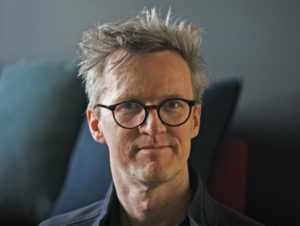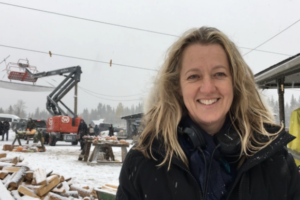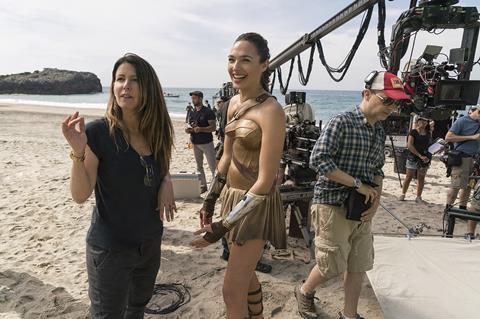CJZ MD Nick Murray and CEO Matt Campbell’s observations on the shortage of top-class TV writers in light of the continuing talent drain overseas have triggered a lively industry debate.
There is general agreement that it is tough for emerging writers to get enough screen credits to establish themselves. While the ABC and some production companies are mentoring writers there are no ready solutions.
Some creatives say there are plenty of skilled writers but networks and producers are often reluctant to back new talent.
“TV in particular rests on the credits of established writers,” contends Ben C Lucas, who co-directed Fighting Season after helming the features Wasted on the Young and Otherlife.
“It’s not that there is a shortage of writers, it’s that there’s a shortage of writers established enough to bankroll a series. What few there are already have their own show so when it comes to financing, yes, there’s a shortage.
“The risk adverse nature of the business is such that newer writers are themselves looking for established writers to back them and their own ideas. I don’t see that there’s a way to break this cycle, short of commissioners taking the occasional punt on someone new – itself the exception, not the rule.”
To be fair, the heads of Matchbox Pictures and Easy Tiger Productions in recent interviews with IF stressed they are developing a raft of projects with emerging writers and producers.
Noting that writers such as Tony McNamara, Andrew Knight and Kris Mrksa are working on international projects, Easy Tiger founder Ian Collie said: “Our big focus is working with tomorrow’s talent, the wonderful emerging writers and creators who hopefully will be the next generation.”
Matchbox Pictures MD Alastair McKinnon noted: “Talent development has always been a priority for Matchbox.”

‘The Heights’ (Photo credit: Ben King).
The Heights, the 30-episode serial produced by Matchbox Pictures and Peta Astbury’s For Pete’s Sake Productions for the ABC, is a template for giving opportunities to new talent: actors, writers and directors.
The ABC is encouraging all producers to bring new people, particularly from diverse backgrounds, into their story rooms, according to Sally Riley, ABC head of drama, comedy and Indigenous content.
“The majority of the shows that we do have new or emerging writers in their story rooms, who sometimes start off as note takers or observers and then progress to writers,” Riley says.
“It’s a long process to become a writer and it works best when you have new writers working alongside experienced people. You have got to be prepared to nurture and mentor people, let them make mistakes and let them grow.
“We have done that on The Heights, Mystery Road and on [Roadshow Rough Diamond’s] Les Norton. One of the main reasons for doing The Heights was to develop new talent, on and off camera.
“We are also doing initiatives with grassroots organisations such as CuriousWorks and I.C.E., in Western Sydney, and they have unearthed some talented writers. You also need to watch who is coming out of film school or short films, and to theatre and playwrights in terms of tapping new talent, such as Nakkiah Lui.
“While we are losing some of our experienced writers to the UK and LA, we are also finding new writers, but it takes a long time for people to develop their skills and craft.”
Chris Squadrito, who was a script editor on Tidelands (he also co-wrote one episode) and on Fighting Season, agrees with Lucas, observing: “The issue at heart is there are precious few opportunities to train and develop newer writers to such an extent that they rack up the credits and become established enough to mount a series.
“There does seem to be more awareness now among prodcos that the fostering of new talent – partnering them up with more established practitioners, as is done often in the US – is required to keep the industry alive beyond the boomer generation. But talking about wanting to foster new writers is not the same as actually doing it. Like most aspects of this industry there is a lot of complacency, inertia and hot air floating around.”
The Nine Network’s co-head of drama Andy Ryan acknowledges that while it has always been tough for writers to get their first credit the rise of short-run drama series has made it harder to consolidate that initial success.
“The problem is not unique to writers. Directors and editors, for example, face similar hurdles,” Ryan tells IF. “One of the major challenges facing the industry is to help emerging writers build viable careers and gain a breadth of experience here in Australia.
“Producers and broadcasters are acutely aware of the problem. There’s no quick fix but I think we’re seeing a renewed focus on mentoring and supporting emerging talent, both from within production companies and from external groups such as Scripted Ink.”
Actor Jonny Pasvolsky, who has devised a bunch of original concepts which he is yet to pitch to producers, says: “So many passionate, brilliant people I know who just want those in ‘power’ to know they exist. Maybe the methods they are using to seek out writers and concepts needs to change. Getting an audience with these types of people is one of the biggest challenges.”
Film director-writer-producer Heath Davis believes there is only a handful of writers and directors in Australia that the networks consider worthy. “That is why our commercial TV is so stale and way behind the UK and US and why people watch Netflix and streaming sites for drama,” he says.
Nonetheless Davis is keen to try his hand at TV drama after being bowled over by Mr Inbetween, the Scott Ryan- Nash Edgerton series commissioned by the FX network.
Squadrito is grateful for the opportunities he’s had, including spending three and a half years with Collie and Rachael Turk at Essential Media, where he worked on such shows as Doctor Doctor and The Principal.
But many of his contemporaries have not been as fortunate. Like Ryan, he points to smaller episode orders combined with higher costs per episode which, he thinks, has meant few new writers are being hired.
“I’ve also been told by producers that networks just won’t approve new talent, and conversely, I’ve been told by network folks that production companies aren’t presenting them with new talent,” he says.
“I’m sure the reality is somewhere in the middle. Everybody talks a big game about fostering new writers but the proof really needs to be in the pudding. Ultimately I feel it comes down to series producers and script producers being willing to back newer writers – of which there are plenty – even if it may mean more work for them through the development process.
“I acknowledge that’s a big ask, but it’s really only with that backing that network approval can hopefully occur.”
IF Magazine . 05 March, 2019 by Don Groves


